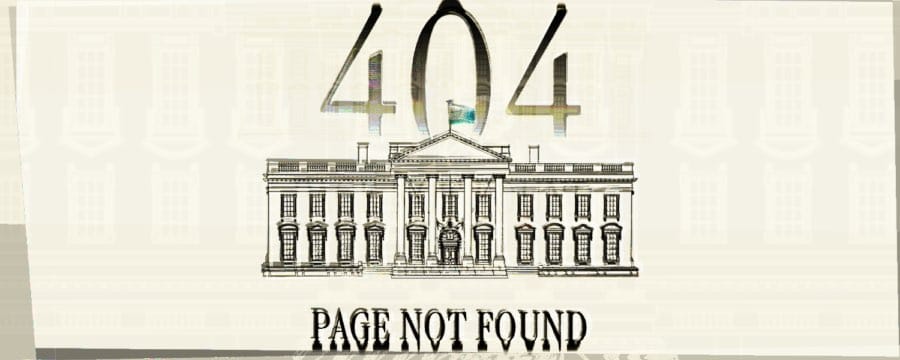Not long ago, the White House website provided a simple, powerful, and standard public service: RSS feeds for its "Presidential Actions." For anyone who wanted to systematically track Executive Orders, Proclamations, or Memoranda, these feeds delivered structured, machine-readable data directly to your feed reader of choice, creating a reliable, real-time record of executive action.
Sometime recently, that service disappeared. The official /feed/ URLs now lead to a "404 Page Not Found" error:

This is more than a technical inconvenience. It is a quiet but meaningful degradation of public infrastructure. The burden of tracking government action has been shifted from an efficient, automated "push" system to a manual, laborious "pull" system. Citizens, journalists, and legal professionals are now expected to repeatedly visit the website and visually scan for changes—a process that is inefficient, prone to error, and fundamentally less transparent.
This represents a deliberate shift from structured data to unstructured presentation. An RSS feed is more than a list of links; it is a promise of machine-readability, a channel for automated monitoring. By removing it, the administration trades genuine transparency for digital aesthetics, replacing an open data stream with a static webpage. The public record may still exist, but the ability to easily and systematically engage with it has been degraded.
Rebuilding the Bridge
When an official channel is dismantled, the open-source community often provides the tools to rebuild it. In this case, the foundation for a solution is RSS-Bridge, a powerful, self-hosted framework that generates feeds for websites that lack them.
The true strength of RSS-Bridge is its extensibility. The platform allows anyone to write a small, specific PHP script—a "bridge"—that tells the system how to parse a particular website. I developed a suite of these custom bridges to target the White House pages, restoring the original functionality by turning the unstructured HTML back into structured data feeds.
Use the Bridges
The goal of this work is to share the solution. To that end, the bridges are available for public use. You can generate feeds from my public instance at https://rssbridge.sij.law, view the live output in my FreshRSS reader at https://rss.sij.law, or grab the code from GitHub to run it yourself. The code is open source and available on my fork of the project (look for the WhiteHouse*.php files), pending its inclusion in the main repository.
The Enduring Need for Watchtowers
The removal of a simple RSS feed is symptomatic of a larger trend toward a less open, less verifiable digital commons. When official sources of information become less reliable, the need for independent, citizen-run "watchtowers" grows. This problem of disappearing infrastructure is a close cousin to the issue of link rot I explored in a previous post, "Toward Enduring Web Citations." Tools like RSS-Bridge and ArchiveBox provide a powerful counternarrative, equipping us to build more resilient and trustworthy methods for accessing public information. We cannot afford to be passive consumers of data that can be altered or removed on a whim; we must build and maintain our own bridges.


